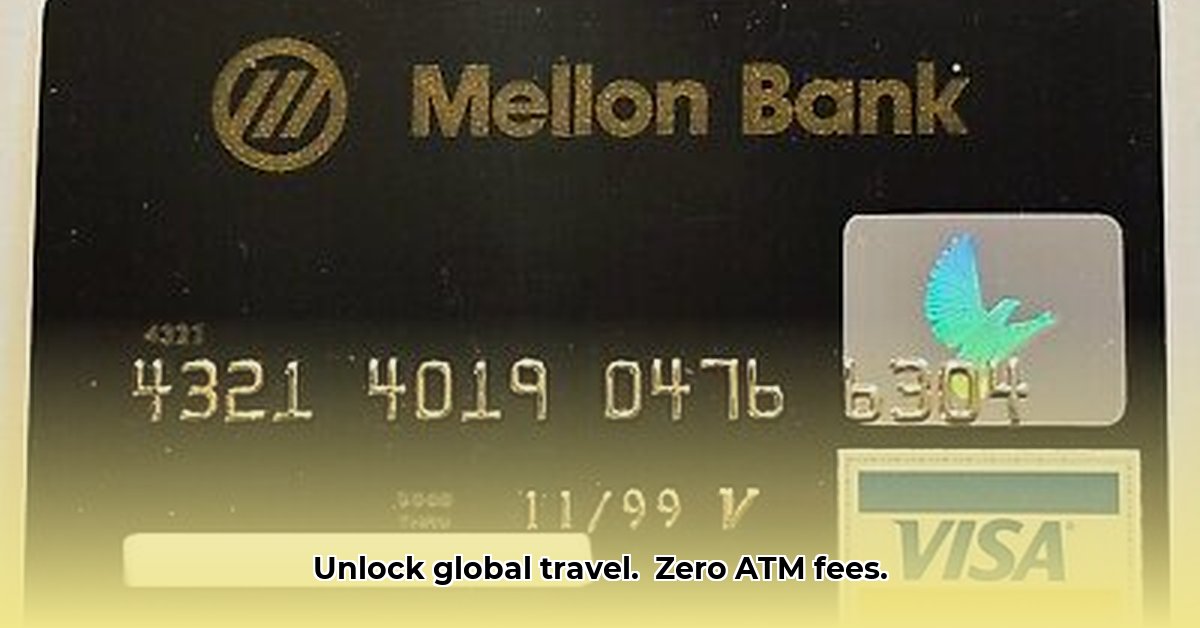
BNY Mellon Debit Card Services: A Competitive Analysis
This report analyzes BNY Mellon's debit card services, comparing its offerings to competitors and providing actionable recommendations. The analysis focuses on features, fees, security, and regulatory compliance. Key areas of improvement are identified to enhance customer experience and mitigate potential risks. For additional information on BNY Mellon's banking details, see their ABA routing number.
Feature Overview: BNY Mellon Debit Cards
BNY Mellon offers debit cards designed for global accessibility and ease of use. Key features include:
- Zero ATM Fees Globally: A major advantage, eliminating ATM withdrawal fees worldwide. This significantly reduces costs for frequent travelers.
- EMV Chip & Contactless Payment: Enhanced security features protecting against fraud through EMV chip technology and contactless payment options (e.g., Apple Pay, Google Pay).
- 24/7 Fraud Monitoring: Proactive monitoring systems detect and alert users to suspicious activity. Response times for fraud resolution should be a priority for improvement.
- Digital Wallet Integration: Seamless integration with popular digital wallets for added convenience and security.
- Foreign Transaction Fees: Standard Mastercard foreign transaction fees (up to 1%) apply to transactions in currencies other than the US dollar. This is a common practice among many card issuers. However, the relatively low fee is offset by the zero ATM fee benefit.
Competitive Analysis: BNY Mellon vs. Key Players
BNY Mellon's debit card offering compares favorably to competitors in some areas, but falls short in others. The following table illustrates key differences:
| Feature | BNY Mellon Debit Card | Competitor A | Competitor B |
|---|---|---|---|
| Global ATM Fees | $0 | $5 per withdrawal | Variable |
| Foreign Transaction Fees | Up to 1% (Mastercard standard) | 3% per transaction | 2.5% per transaction |
| Contactless Payment | Yes | Yes | Yes |
| 24/7 Fraud Monitoring | Yes | Yes | Yes |
| Digital Wallet Integration | Yes | Yes | Yes |
| Customer Support | Variable (potential delays) | Varies | Varies |
Note: Specific fee structures and features are subject to change. Always verify directly with the respective financial institution.
Risk Assessment and Mitigation Strategies
While BNY Mellon's debit cards offer strong security features, potential risks include:
- Fraudulent Transactions: Despite 24/7 monitoring, the possibility of fraud remains. Improving response times to fraud reports and providing clearer communication about resolution processes are essential.
- Foreign Exchange Rate Fluctuations: Foreign transaction fees are based on Mastercard's exchange rate, which can vary unpredictably. Educating customers about managing currency exchange risks is crucial.
- Third-Party Processor Issues: Integrating with third-party processors (e.g., Fidelity) can potentially introduce additional challenges in customer service and issue resolution. Clearer communication protocols and streamlined procedures are necessary to mitigate these challenges.
Regulatory Compliance
BNY Mellon's debit card services must adhere to various regulations, including:
- Data Privacy: Compliance with regulations like GDPR (in Europe) and CCPA (in California) is crucial to protect customer data.
- Security Standards: Adherence to PCI DSS (Payment Card Industry Data Security Standard) and other industry best practices is paramount to prevent data breaches and fraud.
- Anti-Money Laundering (AML): BNY Mellon must comply with AML regulations to prevent the use of its services for illicit activities.
Actionable Recommendations
- Enhance Fraud Resolution Processes: Implement more streamlined and efficient procedures for handling fraud reports, aiming for rapid resolution and transparent communication with customers.
- Improve Customer Support: Address reported challenges with customer service, particularly when dealing with third-party processors, focusing on improved accessibility and responsiveness.
- Enhance Transparency on Foreign Transaction Fees: Clearly communicate the details of foreign transaction fees, including the underlying exchange rate mechanism, to better manage customer expectations.
- Promote Financial Literacy: Provide resources and educational materials to customers to help them understand and manage currency exchange risks when making international transactions.
- Regular Security Audits: Conduct regular security audits to identify and address potential vulnerabilities, and ensure ongoing compliance with relevant regulations.
Conclusion
BNY Mellon's debit card services offer a compelling value proposition, particularly the zero global ATM fee. However, continuous improvement is needed in areas such as fraud resolution and customer support to fully capitalize on this strong foundation. By addressing the recommendations outlined above, BNY Mellon can further enhance its debit card services and solidify its competitive position in the market. Further research into specific customer satisfaction metrics across different demographics would allow for more granular recommendations.